Key witnesses in the Trump impeachment inquiry: a guide
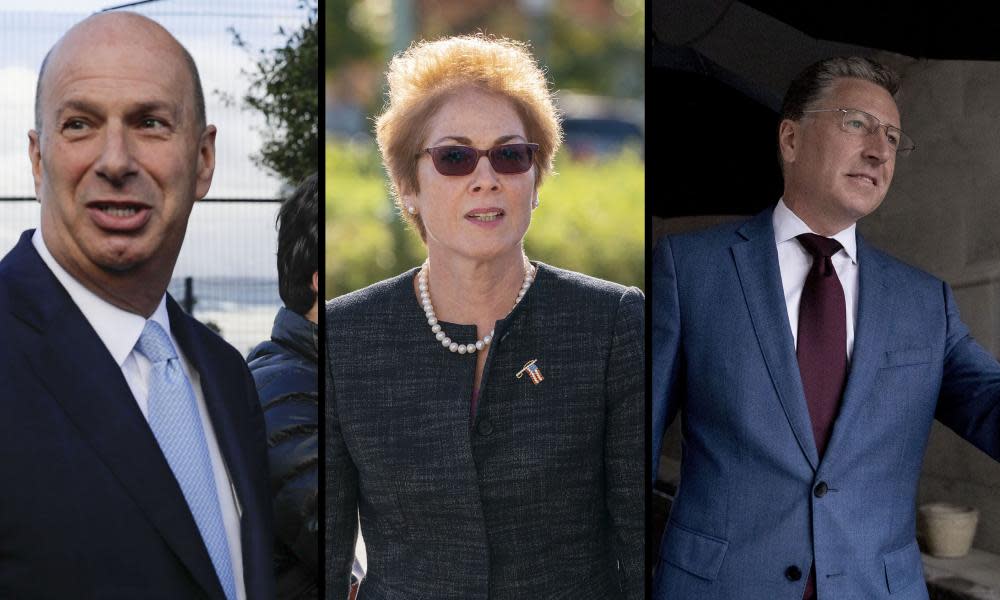
Public hearings in the impeachment inquiry against Donald Trump are scheduled to begin on Wednesday.
The televised hearings are a continuation of a weeks-long congressional investigation into whether the US president abused his office’s power to seek foreign assistance in the 2020 election. The inquiry was prompted by a whistleblower complaint that Trump was pressuring Ukraine to announce an investigation tied to Joe Biden, a 2020 Democratic presidential candidate.
Congressional investigators have so far been questioning witnesses behind closed doors. Last week, the committees released almost 3,000 pages of transcripts from those depositions.
Below is a guide to all the witnesses who have been deposed in the inquiry so far and the key elements of their testimony.
Marie Yovanovitch
Yovanovitch served as the US ambassador to Ukraine for nearly three years before being abruptly recalled by Trump in May 2019. While the circumstances leading to her ouster simmered since last year, the turning point was in early spring, per testimony and reports.
Trump slammed Yovanovitch during his controversial call with the president of Ukraine, Volodymyr Zelenskiy, calling her “bad news”. In a copy of Yovanovitch’s prepared remarks to lawmakers, she said that the deputy secretary of state explained the ouster to her by saying, “He said that the president had lost confidence in me and no longer wished me to serve as his ambassador. He added that there had been a concerted campaign against me, and that the department had been under pressure from the president to remove me since the summer of 2018,” reported CNN.
Related: Trump impeachment inquiry: a timeline of key events so far
A transcript of Yovanovitch’s testimony released on Monday revealed her “shock” when she learned that Trump’s lawyer Rudy Giuliani was trying to ruin her reputation. When Yovanovitch sought advice on how to combat Giuliani’s attacks, she was instructed to tweet something positive about Trump, she told lawmakers.
Gordon Sondland
The US ambassador to the European Union changed his US impeachment inquiry testimony to confirm that Trump pitched Ukraine a quid pro quo to investigate his political rival, according to a four-page updated transcript.
Sondland said he notified a senior Ukrainian official that some $400m in military aid would probably be withheld until the country announced a corruption investigation, including accusations that involved Hunter Biden’s business dealings there. “I now do recall a conversation on 1 September 2019 in Warsaw with” a top Zelenskiy aide, Andriy Yermak, Sondland stated in his updated testimony. “I said that resumption of the US aid would likely not occur until Ukraine provided the public anticorruption statement that we had been discussing for many weeks.”
Sondland, a well-heeled hotelier and major Trump donor, also attempted in his testimony to put space between him and the president.
Sondland had previously claimed he didn’t initially realize Trump wanted to target Biden and the Democratic party. “I did not understand, until much later, that Mr Giuliani’s agenda might have also included an effort to prompt the Ukrainians to investigate Vice-President Biden or his son or to involve Ukrainians, directly or indirectly, in the president’s 2020 re-election campaign,” he told lawmakers, later adding, “[M]y understanding was that the president directed Mr Giuliani’s participation, that Mr Giuliani was expressing the concerns of the president.”
He told lawmakers that he was “disappointed” in Trump’s decision to conduct such important foreign policy through his personal attorney.
Sondland’s testimony marked a critical turning point in the impeachment inquiry, as he is a Trump loyalist at the center of administration discussions on Ukraine. His decision to testify in defiance of state department orders suggests Trump can’t prevent all close members of his circle from talking.
Kurt Volker
Volker worked as the US special envoy to Ukraine. He resigned from the US state department and met with congressional investigators, providing them with texts.
These records reveal that Volker and other US diplomats tried to broker a deal between Zelenskiy and Trump. Under that arrangement, Trump would invite Zelenskiy to the White House. Zelenskiy would state publicly that Ukraine had launched investigations into 2016 election tampering to bolster Democrats.
Zelenskiy’s statement would also announce an investigation into Joe Biden’s son, who had business dealings in the country. “I think Potus really wants the deliverable,” Sondland stated in one of the chats provided by Volker.
In testimony it was revealed that Volker sent a Ukrainian official the script of this statement. This statement, which Trump wanted Zelenskiy to read, would publicize an investigation into Hunter Biden’s business dealings and the hacking conspiracy theory.
Fiona Hill
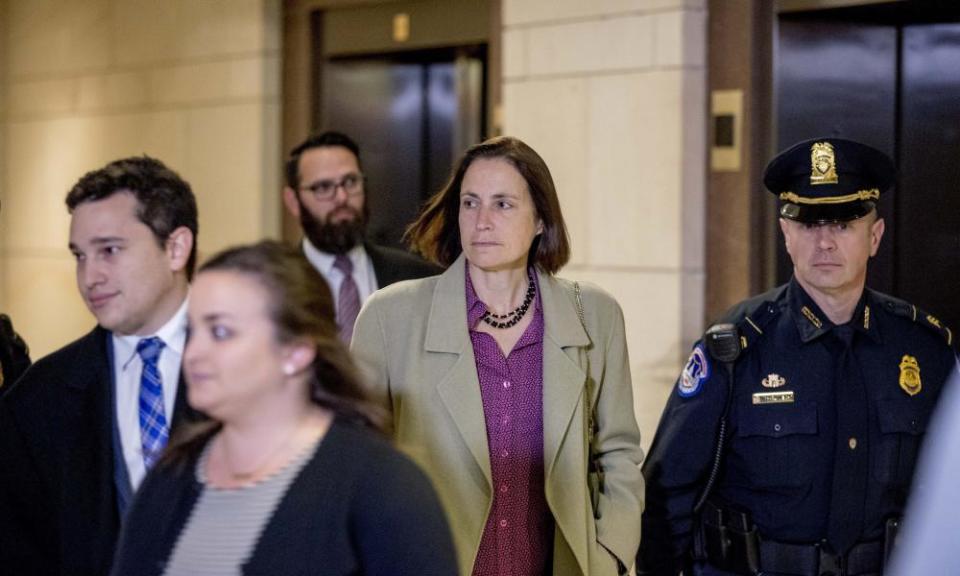
Formerly the White House’s top Russia security expert, Hill testified that the ex-US national security adviser John Bolton was worried about efforts to push Ukraine into investigating Trump’s political rivals. Bolton was so alarmed that he told a senior official to flag White House lawyers about the back-channel dealings, Hill testified.
“I am not part of whatever drug deal Rudy and Mulvaney are cooking up,” Bolton allegedly told Hill to tell an NSC lawyer, referring to Rudy Giuliani and the White House acting chief of staff, Mick Mulvaney.
In Hill’s testimony, she also said that Bolton previously told her, “Giuliani’s a hand grenade who’s going to blow everybody up.”
Michael McKinley
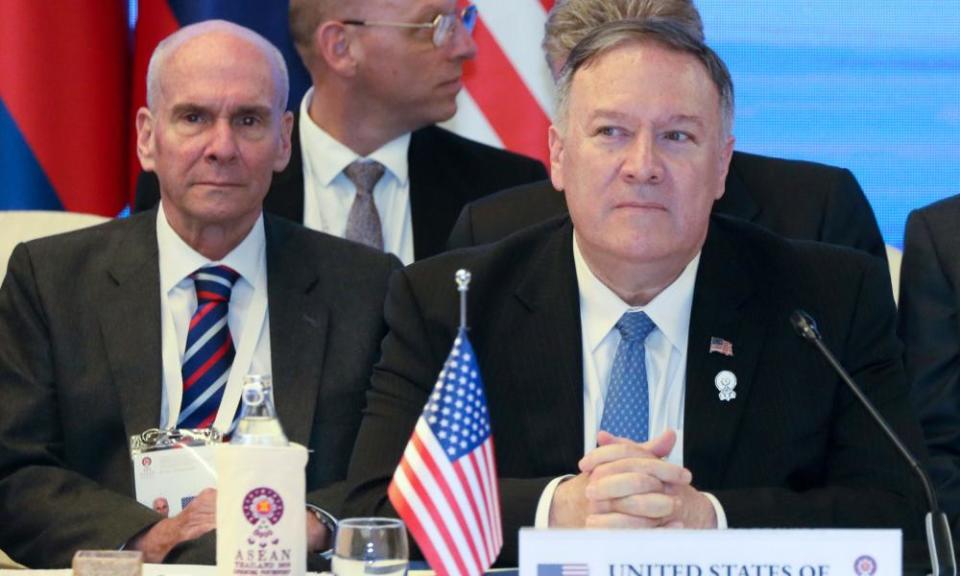
Mike Pompeo’s former senior adviser told congressional investigators that the secretary of state ignored his entreaties to support Yovanovitch after her ouster for seemingly political reasons. McKinley also testified that members of the US’s foreign service corps felt unprotected due to improper political machinations.
According to a transcript of his testimony, McKinley said that he was disgusted with Trump’s characterization of Yovanovitch as “the woman [who was] bad news” during his call with Zelenskiy – and concerned over a seeming attempt to gather dirt on the Bidens.
McKinley said Pompeo thrice ignored his appeals for Yovanovitch – including a statement included alongside his resignation.
“And if I can underscore, in 37 years in the foreign service and … working 10 years back in Washington, I had never seen that,” McKinley said.
George P Kent
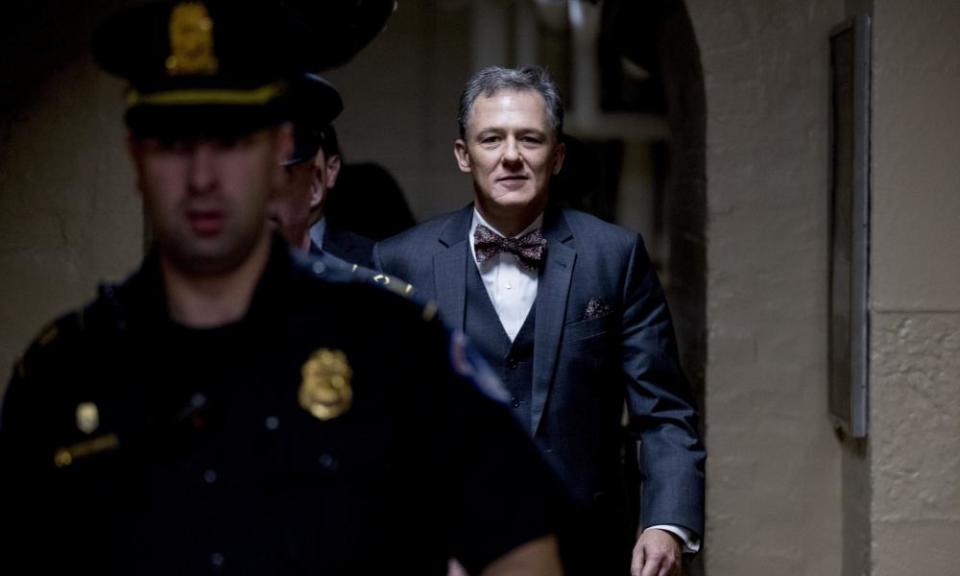
The deputy assistant secretary of state, who heads Ukraine policies, testified that he was effectively elbowed out of all decisions involving Ukraine, reported the New York Times. Kent’s exclusion from Ukraine policy came after a meeting in May that was organized by Mulvaney. Kent viewed his displacement as “wrong”.
The White House had instructed Kent not to cooperate with congressional investigators. By testifying, he joined the expanding cadre of high-ranking administration officials who have appeared before the House intelligence committee.
Bill Taylor
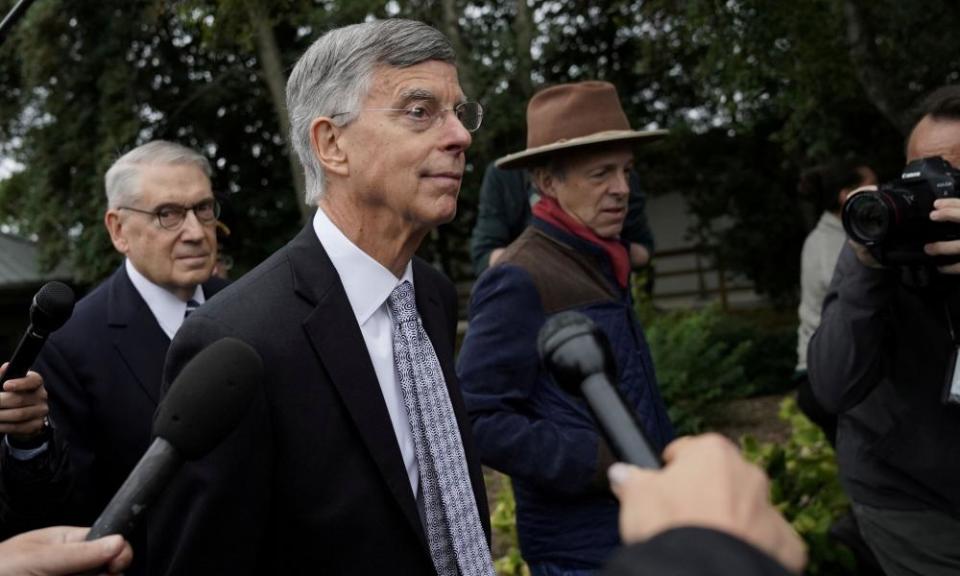
Taylor, the acting US ambassador to Kyiv, said in shocking testimony that Trump explicitly applied pressure to Zelenskiy to investigate Biden, and look into the unsubstantiated conspiracy theory that Ukraine meddled in the 2016 election to boost Clinton. When Taylor arrived to Kyiv after Yovanovitch’s ouster, he discovered a “confusing” and “ultimately alarming” scene.
While Ukraine did seem like it was working to combat corruption, Taylor said he found that there were two avenues of US policymaking. One was a normal channel, where there was diplomatic support for reform. The other channel, which he called “highly irregular”, was run by Volker, Sondland and the energy secretary, Rick Perry. He ultimately learned that Giuliani was also part of this unorthodox policymaking.
In Taylor’s testimony, he recalled sensing “something odd” about Trump’s scheduled call with Zelenskiy. Sondland informed Taylor that regular interagency participants would not be included.
Taylor intimated that there was a clear quid pro quo, saying “Ambassador Sondland told Mr Yermak that security assistance money would not come until President Zelenskiy committed to pursue the Burisma investigation.”
Philip Reeker
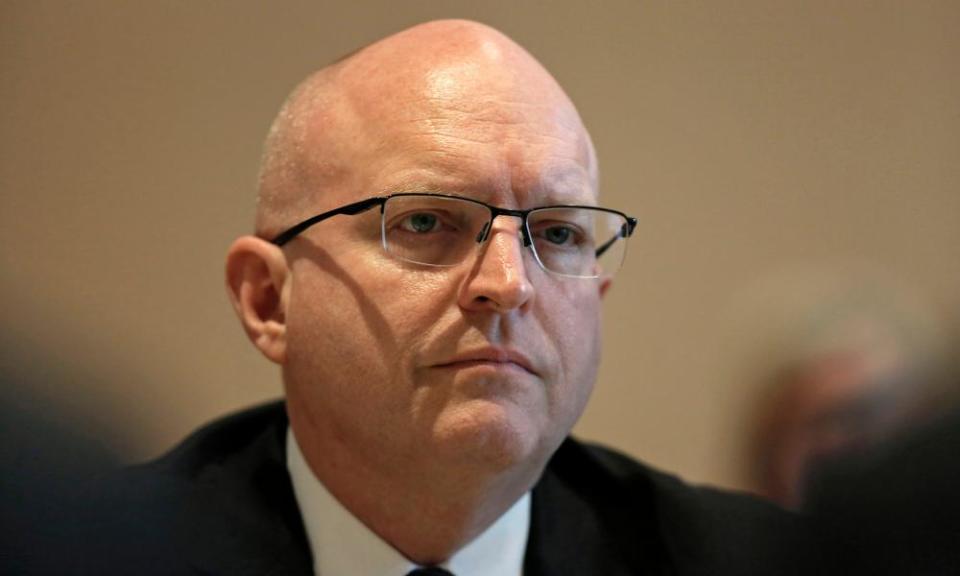
The acting assistant secretary of state for European and Eurasian affairs gave this testimony though the Trump administration reportedly directed him not to. Reeker told lawmakers that he did not know US aid might have been used as a bargaining chip to pressure Ukraine into investigating Trump’s rivals, a source told Reuters.
The source also claimed that Reeker wanted the state department to mount a more forceful defense of Yovanovitch – an effort that was quashed “from the top”.
Laura Cooper
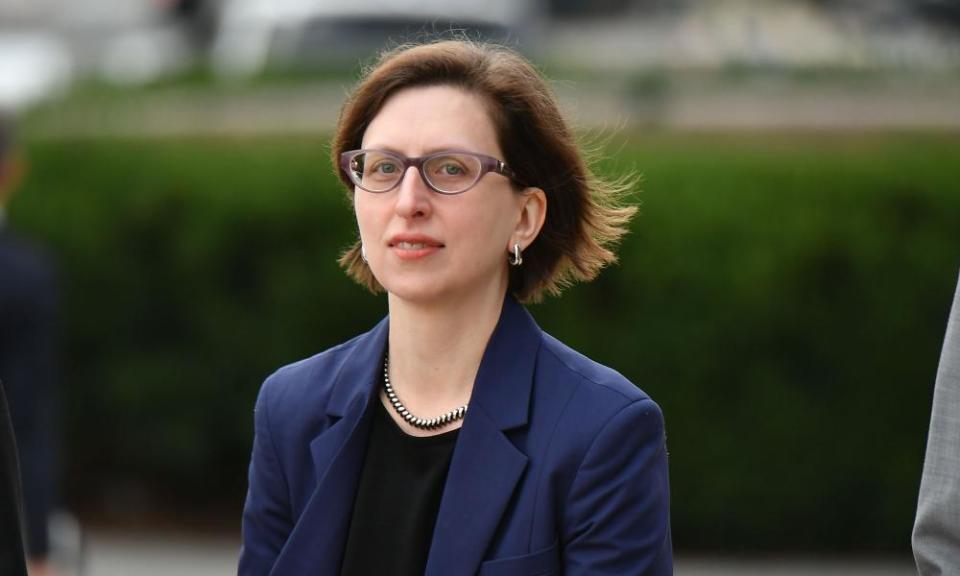
Laura Cooper, the top Pentagon official overseeing US policy regarding Ukraine, testified that Volker was trying to get a “statement” from Ukraine so military aid would be released, according to a transcript of her testimony. Cooper’s recollection is similar to that of other top defense officials, who have described an attempted quid pro quo. Cooper told lawmakers that she first learned about the withheld military aid in mid-July, when her deputy reported back from a meeting. At a 26 July meeting – one day after Trump’s now-infamous call – “it was the first time it was stated very clearly” that the hold “relates to the president’s concerns about corruption”.
Cooper testified despite a warning letter from the Trump administration telling her not to do so – and a Republican-led protest that delayed her testimony for five hours.
Army Lt Col Alexander Vindman
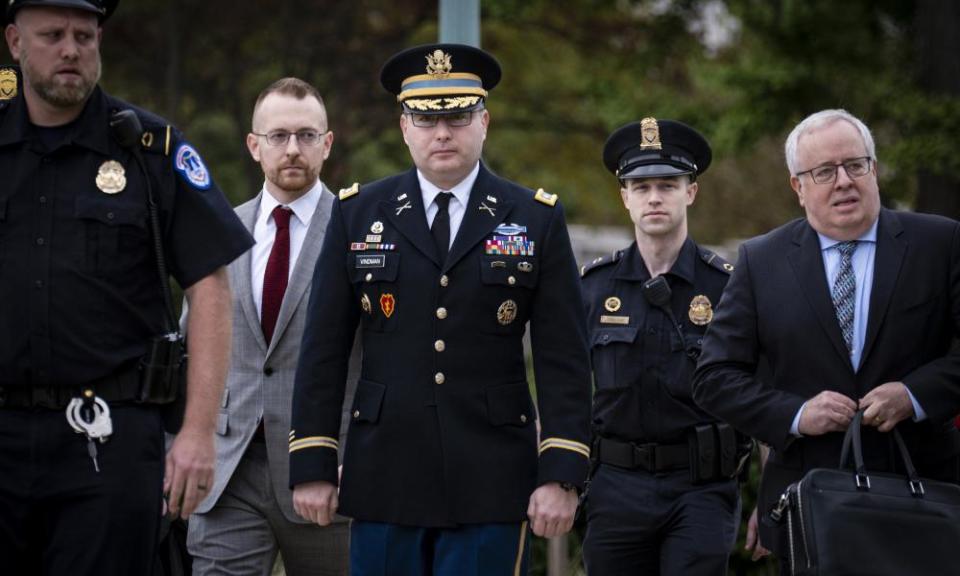
The National Security Council’s top Ukraine expert reportedly said Trump’s efforts to thwart Biden were undercutting US foreign policy. Vindman, who was on the watershed call between Trump and Zelenskiy, testified the transcript omitted key words and phrases. Among the omissions: Trump referencing recordings of Biden and Zelenskiy referring to Burisma. Vindman reportedly tried editing the written account to fix the omissions, but some of his fixes were not included in the summary that was released.
“I did not think it was proper to demand that a foreign government investigate a US citizen, and I was worried about the implications for the US government’s support of Ukraine,” testified Vindman, who was awarded a Purple Heart medal after he was wounded by an improvised explosive device in Iraq.
While key Democrats called Vindman’s account “extremely disturbing” – and said he was “very credible” – Trump’s allies highlighted that Vindman was born in Ukraine. Vindman was three years old when he and his family left the then Soviet Union and settled in the US.
Tim Morrison

The National Security Council official Tim Morrison backed up earlier claims that the Trump administration tried brokering a questionable deal with Ukraine. Morrison, however, also appeared to set the stage in his testimony for clearing Trump – suggesting that Sondland conducted the shadow foreign policy on his own.
Morrison appeared poised to try protecting Trump by hinting that whatever quid pro quo was Sondland’s idea. “I hoped that Ambassador Sondland’s strategy was exclusively his own and would not be considered by leaders in the administration and Congress, who understood the strategic importance of Ukraine to our national security,” Morrison reportedly said.
Morrison said he subsequently told the top National Security Council lawyer about the call. The lawyer quickly moved the call record into a highly restricted area. “I want to be clear,” Morrison said in his testimony, “I was not concerned that anything illegal was discussed.”
Catherine Croft
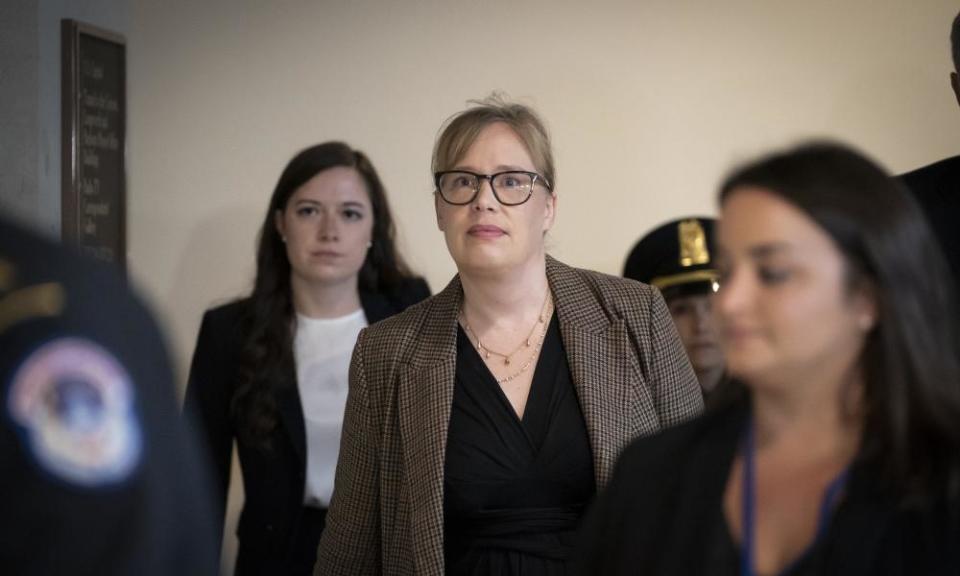
A career diplomat with the state department, Croft said Trump might change Ukraine policy if Biden emerged as a viable rival, according to her testimony. Croft said that she and Taylor discussed his concerns over Ukraine policy in May, after he was tapped to lead the US embassy there.
Croft also felt “trepidatious [sic]” about becoming special assistant to Volker; following media reports, “I thought at the time that it was possible that the Trump administration would choose to change its policy to suit domestic politics.” When it came to Giuliani’s alleged involvement in shadow foreign policy, she also “thanked [Volker] for keeping me out” of messy dealings, per her testimony. She also said Ukraine officials voiced concerns about the withheld military money.
Christopher Anderson
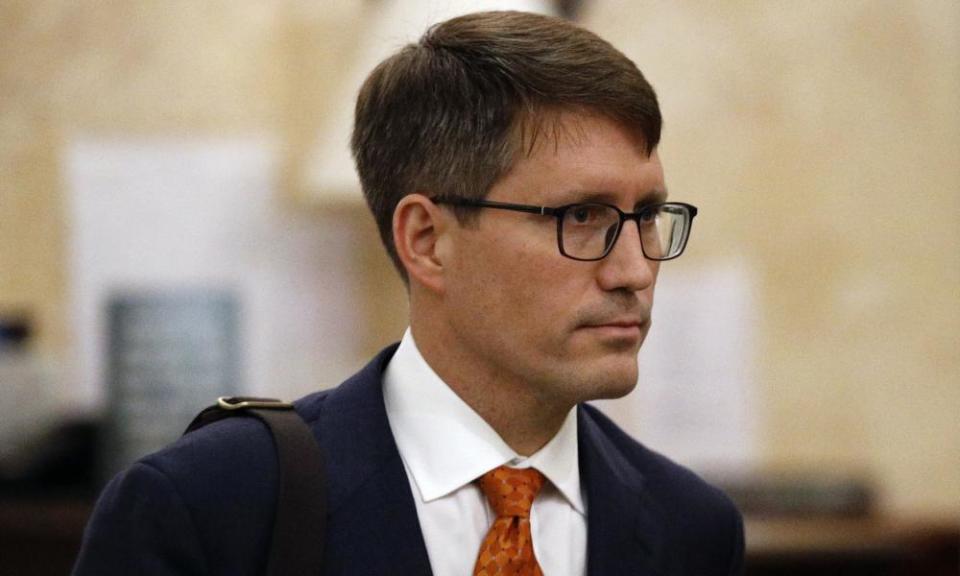
The foreign service officer, who worked on Washington-Kyiv relations for five years, said he and Volker discussed the Ukrainian prosecutor general Yuriy Lutsenko around March 2019. Anderson told lawmakers he thought Lutsenko “was trying to keep his job by making himself useful to the US government, or to certain people in the US government, or in the US” such as “Giuliani and others”.
Anderson also recalled that Taylor “repeatedly expressed his concern that Giuliani would make his job difficult, and he requested a meeting with the secretary to discuss those concerns. And he requested that he be reassured about – that he would be able to do the job and that our support for Ukraine would not – our policy for Ukraine would not change.”
Michael Atkinson
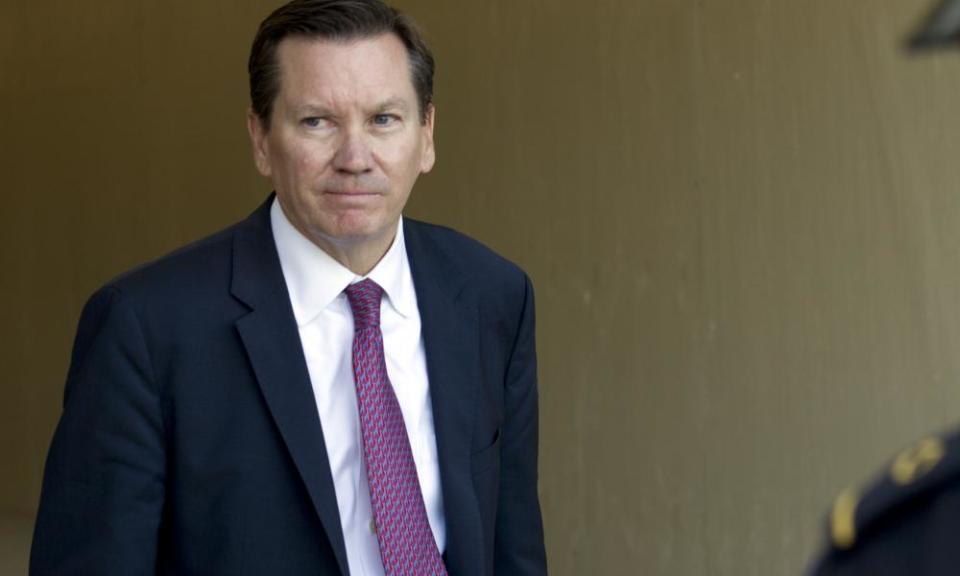
The US intelligence community’s inspector general found that the whistleblower complaint was so credible and troubling that it was a matter of “urgent concern” – a designation meaning that congressional oversight committees must be notified.
Atkinson was not forthcoming when he went before lawmakers in a closed-door session. He made clear this was not by choice, telling lawmakers that he was only holding back because the Department of Justice and White House told him to, reported Politico. Despite this block, he did reveal that the complaint was not isolated to one incident.
Joseph Maguire
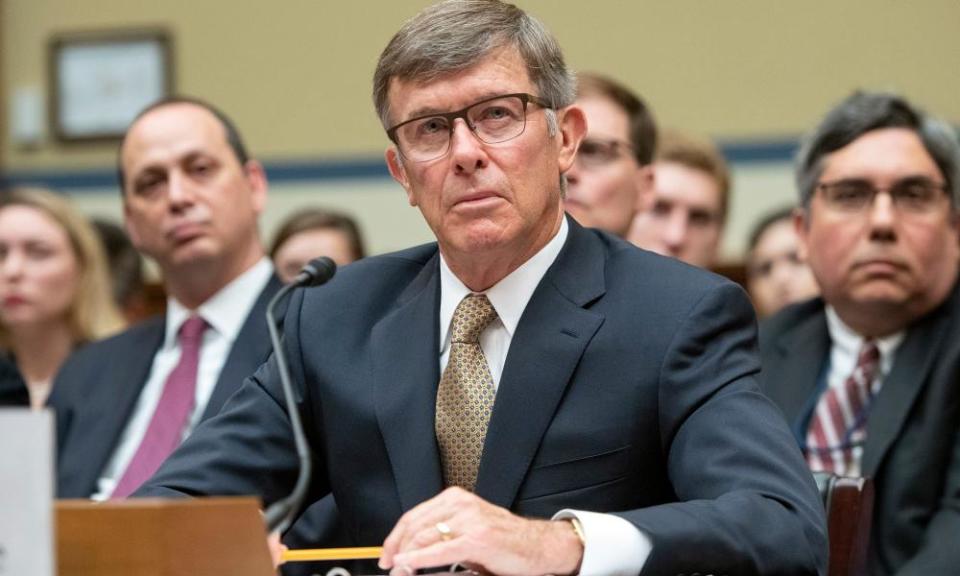
Photograph: REX/Shutterstock
The acting director of national intelligence told members of the House intelligence committee that he thought that the whistleblower and Atkinson “acted in good faith”. “I have every reason to believe that they have done everything by the book,” he reportedly testified.
Maguire, who started this job on 16 August, faced criticism for not immediately making the complaint available. Maguire said he believed concerns in the complaint might be affected by executive privilege. The White House ultimately released the complaint.
David Hale
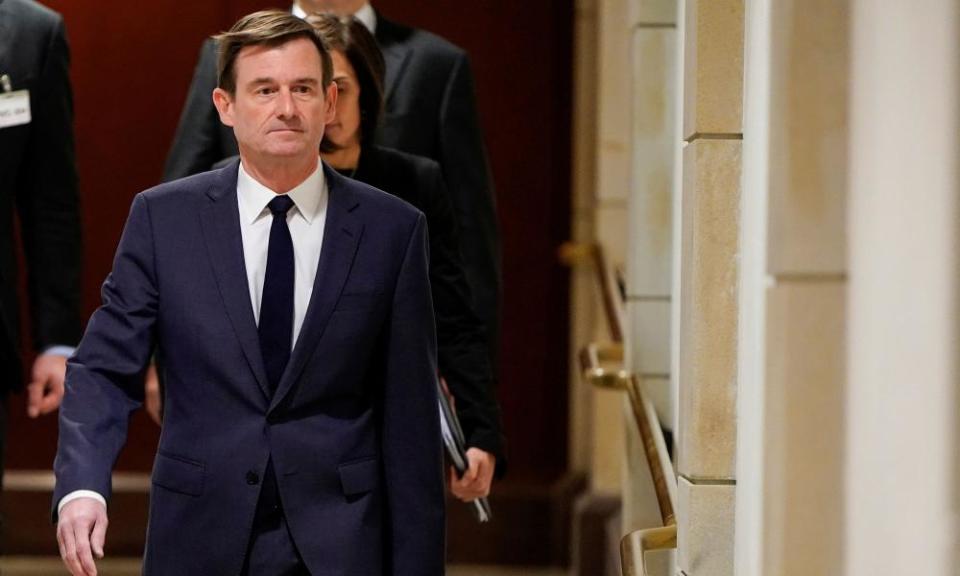
The third most senior state department official testifying before lawmakers had been expected to explain why the department did not defend Yovanovitch. Hale was expected to argue that putting forth a strong defence of Yovanovitch would have hindered the release of military aid to Ukraine, per the Associated Press.
Following his testimony, the North Carolina Republican Mark Meadows described him as “a distinguished public servant”, saying he “made a compelling case that there was absolutely no linkage between suspension of military aid and political investigations”, reported the Washington Post.
But Schiff lauded Hale, and said he hoped others “would show the same courage and dedication to the law that Ambassador Hale is demonstrating here today”.

